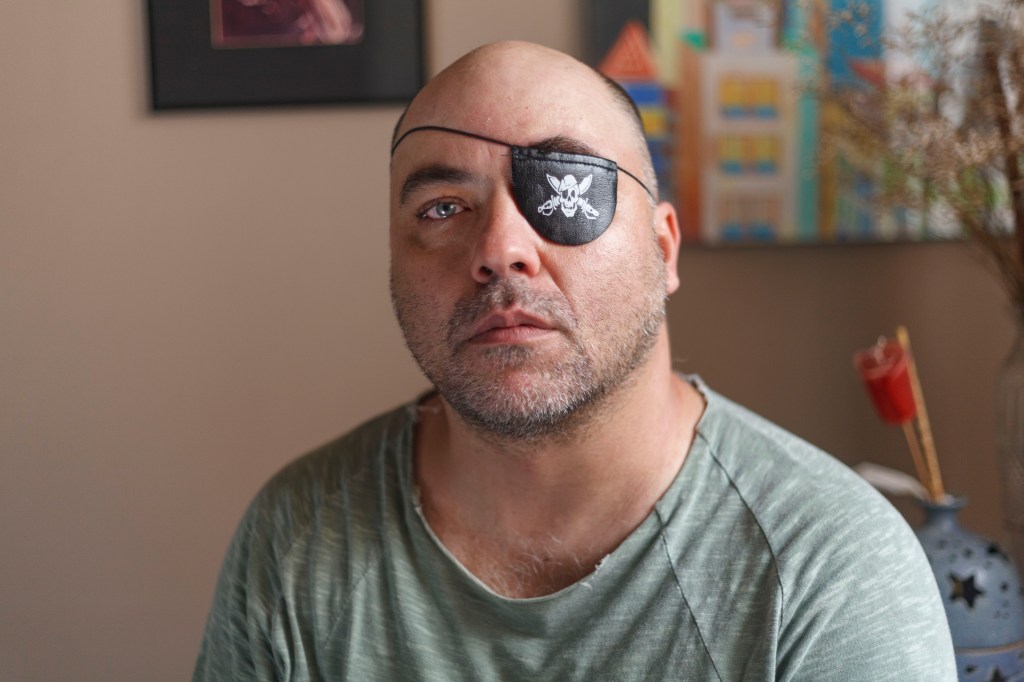Rio de Janeiro, June 15, 2021 — The Committee to Protect Journalists today welcomed a Brazilian Supreme Court ruling requiring São Paulo state to compensate photojournalist Alex Silveira for an injury inflicted by police officers.
On May 18, 2000, Military Police officers shot Silveira, then a photojournalist at the São Paulo daily newspaper Agora, in the eye with a rubber bullet while he was covering a protest by public school teachers, according to news reports and the journalist, who spoke to CPJ in a phone interview.
In the following months, Silveira underwent six eye surgeries and lost nearly all the vision in his left eye, and in 2003, he filed a civil lawsuit seeking damages from São Paulo state, he said.
On June 10, the Supreme Court ruled that São Paulo state was responsible for Silveira’s injury, and ordered the state to compensate him, according to those reports and the journalist.
Silveira told CPJ that the ruling was an important step, but added, “the battle is not over.” The court has not published its final decision, including the amount of financial compensation the state should pay, and the specific precedent set for future decisions in similar cases, Silveira said. In an email to CPJ, the Supreme Court press office said that the decision would be published within 60 days of the ruling.
“The Brazilian Supreme Court decision holding São Paulo state responsible for police officers shooting photojournalist Alex Silveira in the eye is an important step toward justice, but the court must ensure he receives fair compensation and establish a precedent to protect journalists from police violence,” said CPJ’s Central and South America program coordinator, Natalie Southwick, in New York. “This decision cannot bring back the 20 years of Silveira’s life spent fighting for justice, or restore his sight, but it can send a clear message that authorities have an obligation to protect journalists covering protests, not use them for target practice.”
In 2008, the Fifth Public Treasury Court in São Paulo determined that the state should compensate Silveira; in 2014, however, the Second Chamber of Public Law overturned that decision, ruling that the journalist had put himself at risk and therefore was responsible for his own injury, according to news reports and Silveira; he then appealed to the Supreme Court.
“We will only understand the impact when the final decision is out. It will depend on the parameters [the Supreme Court] establishes for state responsibility in similar cases and on the amount granted for moral and material damages,” Silveira told CPJ. “If the compensation is not meaningful and fair, it will have no practical effect. The Supreme Court decision will only be effective if it hurts the state in such a way that Military Police commanders restrict the use of these less lethal weapons.”
Tais Gasparian, a lawyer who has worked on Silveira’s legal team along with her colleague, Virgínia Garcia, for more than 18 years, told CPJ via messaging app that the decision showed that “the press worker, in exercising their profession, is acting in the public interest and should be compensated when injured by agents of the state.”
Separately, freelance photojournalist Sérgio Silva also has a civil case pending in the Supreme Court seeking damages from São Paulo state after Military Police officers shot him in the eye while he was covering a protest in 2013, according to news reports and the journalist, who spoke to CPJ in a phone interview.
“Our concern now is about the parameters that will be part of the Supreme Court’s detailed decision [in Silveira’s case], yet to be published. It can be positive or it can be a disaster,” Silva told CPJ.
At least 25 journalists were attacked or detained during the nationwide protests that Silva covered, as CPJ documented at the time.
An employee of the São Paulo State Court press office, who signed their email as Helena, told CPJ that the court declined to comment on the Supreme Court decision.
Press officer Gabriela Amaral emailed CPJ a statement from the São Paulo Military Police saying that the use of rubber bullets and other similar weapons “is regulated by internal rules and takes place under specific conditions, by qualified agents trained in its use.”
Silveira told CPJ, “nothing has made me suffer as much as the 20-year search for justice. It is very tiring, and it is not something you can do alone. I’ve counted on the support of many institutions and a law firm, without them it would not have been possible. I think the state uses this [drawn-out process], they want to tire us out until we give up fighting for our rights.”
